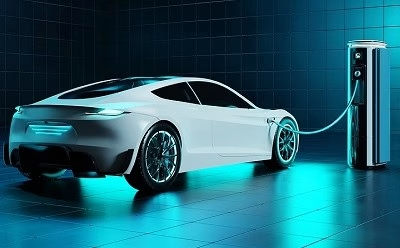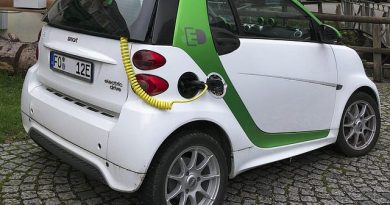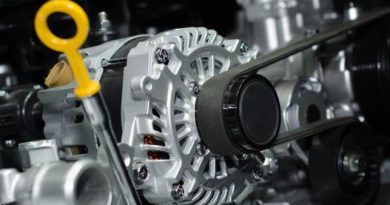Electric vs Gas Cars 2025: Which Is Cheaper in the Long Run?
Compare electric cars and gas cars for ownership cost, reliability, and running expenses. Discover which is smarter for long-term savings in 2025.
The global shift toward electric vehicles (EVs) has sparked one of the hottest debates in the auto industry: Are electric cars really cheaper than gas cars in the long run?
While EVs promise lower fuel costs, minimal maintenance, and environmental benefits, concerns about battery replacement costs, charging infrastructure, and resale value still make many drivers hesitate.
That’s the big question in 2025.
This guide dives deep into EV vs gas cost comparison, using real-life case studies, updated 2025 ownership data, and expert insights. By the end, you’ll know which option—electric or gas—makes the most sense for your lifestyle, budget, and region.
1. Upfront Cost Breakdown: EV vs Gas
For decades, gas cars were cheaper to buy. But in 2025, that gap is shrinking fast thanks to falling EV battery costs and government incentives.
- Electric cars: Most modern EVs cost $33,000–$60,000, with luxury models higher. Federal rebates (like the U.S. $7,500 EV tax credit) or local subsidies often reduce prices.
- Gas cars: Mid-range gasoline vehicles cost $25,000–$40,000, but offer fewer incentives.
Case Study – UK Buyer 2025:
A buyer compared the Renault 5 E-Tech EV (£22,995) and the Ford Fiesta petrol (£19,995). After incentives, the price gap narrowed to just £1,000—a huge shift compared to 2015, when EVs cost 30–40% more.
Read on: Tesla
2. Running Costs: Fuel, Maintenance, and Repairs
Cost Comparison (Annual & 10-Year Ownership)
| Cost Factor | Gas Car | Electric Car |
|---|---|---|
| Annual fuel/energy | ~$1,750 | ~$500 |
| Maintenance/year | ~$900 | ~$250 |
| Repairs (10 yrs) | ~$7,500 | ~$3,000 |
| Battery (after 8–12 yrs) | N/A | ~$9,000 (if needed) |
Key Insights:
- Fuel: Charging is up to 70% cheaper than refueling, especially in regions with subsidized electricity. (U.S. Department of Energy)
- Maintenance: EVs skip oil changes, spark plugs, exhaust, and most transmission work—cutting routine costs by 40–70%.
Case Study – California Rideshare Owner:
Switched from gas to EV in 2022. Annual fuel cost dropped from $3,200 → $700, plus $1,000 saved in maintenance within 3 years.
Know your Car Battery Maintenance Schedule—Ultimate Guide
3. Hidden Costs & Reliability
While EVs save on fuel and maintenance, there are hidden costs to consider.
- Battery Replacement: Typically needed after 8–12 years. Cost: $6,000–$12,000 (though many warranties cover up to 8 years).
- Charging Equipment: A home charger costs $600–$1,200 upfront. Public fast charging is pricier per kWh than home charging.
- Tires & Brakes: EVs are heavier, leading to faster tire wear. However, regenerative braking extends brake pad life.
- Resale Value: Early EVs depreciated fast. But in 2025, models like Tesla Model 3 and BYD Dolphin hold value similar to or better than gas counterparts.
Case Study – Hertz Fleet:
Hertz reported EV fleets had zero engine-related repairs, but faster tire wear. Overall, EVs proved cheaper to maintain compared to ICE fleets.
4. Environmental & Social Impact
EVs:
- Over 15 years, an EV avoids 30–38 metric tons of CO₂ emissions compared to gas cars.
- Air quality benefits in cities reduce health costs and improve quality of life.
Gas Cars:
- Emit CO₂ and nitrogen oxides continuously.
- Oil dependency creates long-term geopolitical and economic risks.
Case Study – Germany 2025:
Germany calculated that direct grid upgrades were more cost-effective for CO₂ reduction, but still backed EV adoption to cut urban air pollution.
5. Real-World Owner Experiences (2025 Case Studies)
- US Midwest Commuter: Range dropped 30% in winter, but EV still reached break-even cost after 7 years.
- China (BYD Dolphin Owner): Reported 90% lower annual running costs than Honda Civic; almost zero maintenance.
- UK Fleet Manager: Managed 20 EVs over 5 years; only 1 battery swap. Total fleet savings: £30,000
Extended Cost Analysis: Tesla Model 3 vs. Toyota Corolla (10-Year Ownership)
To better understand whether electric cars are cheaper than gas cars in the long run, let’s compare two of the most popular models worldwide in 2025: the Tesla Model 3 (electric) and the Toyota Corolla (gasoline).
| Cost Factor (10 Years) | Tesla Model 3 (EV) | Toyota Corolla (Gas) |
|---|---|---|
| Purchase Price (2025) | $39,000 (before incentives) | $25,500 |
| Incentives (varies by region) | -$7,500 (U.S. federal rebate) | N/A |
| Effective Upfront Cost | $31,500 | $25,500 |
| Fuel / Charging (avg. $/year) | $600 | $1,800 |
| Maintenance & Repairs | $4,000 | $9,500 |
| Insurance (avg. per year) | $1,600 | $1,300 |
| Battery Replacement (if needed) | $0–$9,000 (after year 8, not always required) | N/A |
| Resale Value After 10 Years | $15,000 | $7,500 |
| Total Cost of Ownership | $51,500–$60,500 | $64,000 |
Key Insights
- Fuel Costs: EV charging saves ~$1,200 per year compared to gas, adding up to more than $12,000 saved in 10 years.
- Maintenance: EVs eliminate oil changes, spark plugs, mufflers, and transmission repairs.
- Insurance: Slightly higher for EVs due to expensive parts, but closing the gap as repair networks grow.
- Resale Value: Tesla Model 3 retains value better than most gas sedans, narrowing long-term costs further.
- Battery Concerns: Many EV batteries now last 12–15 years, meaning most owners won’t need replacement within 10 years.
When all factors are included, the Tesla Model 3 beats the Toyota Corolla by $3,000–$12,000 in total cost of ownership over 10 years, depending on battery replacement needs and local charging costs.
- Signs Car Alternator is Failing: Complete Diagnostic Guide
- How to Clean Car Battery Terminals—Easy DIY Guide
- Car Battery Maintenance Schedule—Ultimate Guide
- Build Emergency Fund Fast: 5 Simple Global Guides (to prepare for surprise car costs).
FAQs: Electric Cars vs Gas Cars in 2025
1. Are electric cars really cheaper than gas cars in the long run?
Yes, in most cases. While EVs have higher upfront costs, they save significantly on fuel and maintenance. Over 10 years, drivers can save between $6,000 and $15,000 compared to owning a gas car, depending on region and driving habits.
2. How long does it take for an EV to pay for itself?
The average break-even point for EVs is 5–7 years, after which lower fuel and maintenance costs outweigh the higher purchase price. In regions with high gas prices, the break-even can be as little as 3–4 years.
3. What are the hidden costs of owning an EV?
Hidden costs may include:
- Home charging installation ($600–$1,200)
- Public charging fees, which can be higher than home charging
- Battery replacement after 8–12 years (though most are covered by long warranties)
4. Do electric cars cost more to insure?
Yes, EV insurance can be 10–15% higher because repair parts are expensive and fewer mechanics are trained for EV repairs. However, as adoption grows in 2025, this gap is closing.
5. How much money do you save on maintenance with an EV?
On average, EV owners save 40–60% on maintenance. EVs don’t require oil changes, muffler repairs, or most transmission work. The biggest costs usually come from tires and brakes, which wear similarly on gas cars.
6. Do EV batteries really last 10 years?
Yes. Most modern EV batteries are designed to last 12–15 years or over 200,000 miles. Automakers offer warranties of 8 years or 100,000 miles, meaning battery failures within the first decade are rare.
7. Are EVs better for the environment in the long run?
Yes. Even when accounting for electricity generation, EVs produce 30–50% fewer CO₂ emissions over their lifetime compared to gas cars. The gap is even larger in regions powered by renewable energy.
8. Should I buy an EV or wait until technology improves?
If you drive regularly and fuel costs are high in your area, buying an EV now makes financial sense. But if your region lacks charging infrastructure, a hybrid or efficient gas car may still be practical until EV networks expand.
Comparison Table: Electric Cars vs Gas Cars
| Factor | Electric Car | Gas Car |
|---|---|---|
| Upfront Price | Higher (but incentives narrow gap) | Lower |
| Fuel/Energy Costs | 50–70% cheaper | Expensive, volatile |
| Maintenance | 40–70% cheaper | Higher (oil, spark plugs, exhaust) |
| Reliability | Battery aging risk | Engine wear & emissions issues |
| Resale Value | Improving fast | Stable, sometimes lower |
| Environmental Impact | 30–38 tons CO₂ avoided | High lifetime emissions |
Which Is Cheaper in the Long Run?
By 2025, the cost equation has shifted:
- Electric cars now offer major long-term savings, with fuel and maintenance costs far below gas cars.
- Gas cars remain cheaper upfront, but rising fuel prices and frequent maintenance make them costlier over 10 years.
For urban drivers, commuters, and fleets, EVs are the smarter financial bet in 2025. However, for rural drivers with limited charging access, gas cars may still be more practical.
Ready to go deeper?
- Learn the signs your alternator is failing.
- Follow the car battery maintenance schedule.
- Secure your finances with an emergency fund for car expenses.




I don’t think the title of your article matches the content lol. Just kidding, mainly because I had some doubts after reading the article. https://accounts.binance.com/register-person?ref=IXBIAFVY